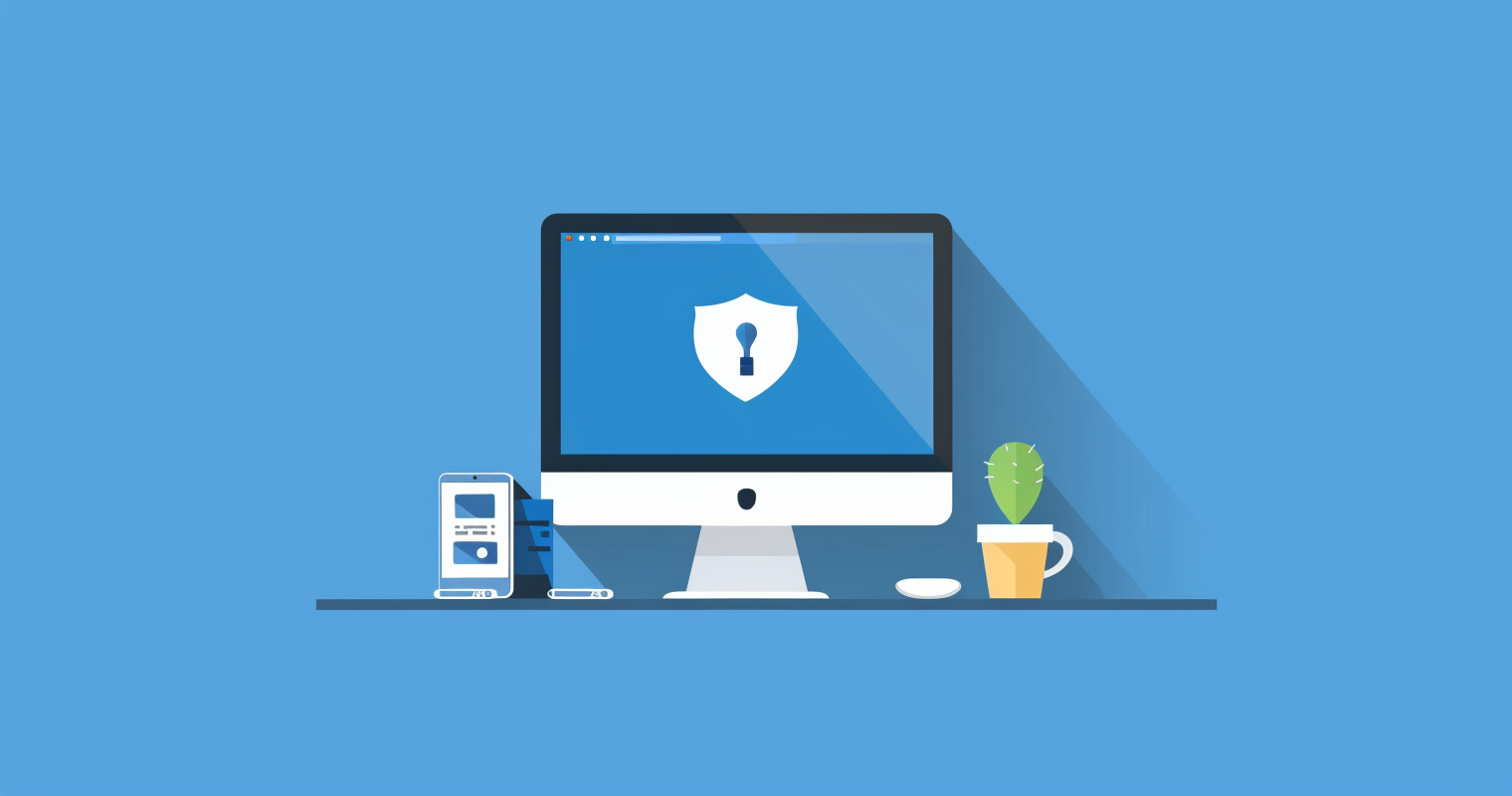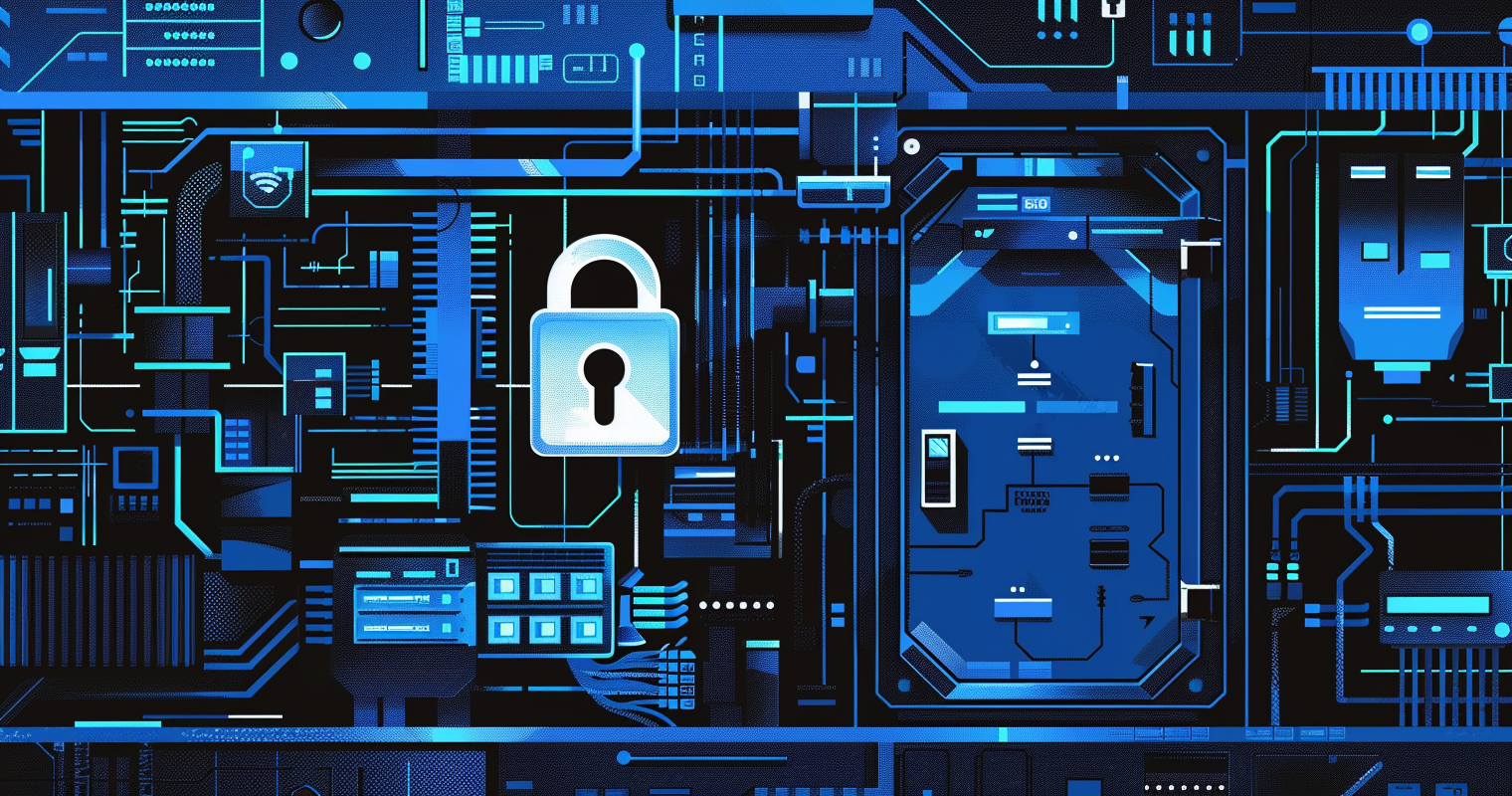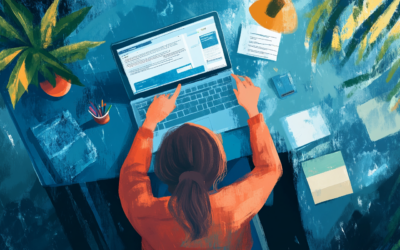In today's digital age, WordPress security for websites is of paramount importance. There is no simple solution that solves all security issues at once. Instead, a secure WordPress website requires continuous attention and a deep understanding of the potential risks. This article provides an overview of the essential steps to secure your WordPress installation and emphasizes the importance of a comprehensive approach to security.
Security in the digital space is a complex issue that requires a balance between user-friendliness and effective protective measures. A lot of advice on the internet is not enough, as real security goes far beyond installing a plugin. We'll show you how to significantly improve your WordPress security by closing security gaps and gaining a solid understanding of attack vectors.
As experts in WordPress security, we not only provide you with important background knowledge, but also practical instructions on how to effectively protect your website from hacker attacks. Our goal is to help you secure your WordPress website with targeted measures so that you and your users can operate worry-free. Our WordPress maintenance service helps you to secure your website.
Digital security is a multifaceted topic that goes far beyond the mere installation of protection mechanisms. Creating a completely invulnerable system is an almost impossible task. Nevertheless, it is possible to ensure the confidentiality, integrity and availability of the resources stored on a server by taking careful measures. This article sheds light on what is meant by security and how to implement it in practice, particularly in the context of web hosting and WordPress.

Table of contents
- The pillars of a secure web host
- WordPress: Basics for increased security
- The foundation of WordPress security: a robust password
- Management of access data
- Securing WordPress: removing unused themes and plugins
- Maintaining and updating your website: A necessity, not an option
- WordPress security: regular backups for your website
- Securing the login area: An effective measure against unwanted access attempts
- Implementing a firewall: an essential step in securing your website
- Optimization of database security in WordPress by restricting user rights
- Conclusion and our WordPress maintenance service
The pillars of a secure web host
A reliable web host is characterized by various quality features that are of central importance for security:
- Open communication about safety practices and a willingness to take safety concerns seriously.
- The use of current and stable software versions on the server.
- Reliable backup and restore processes.
- The choice of software and the data configuration on your server are decisive for the security aspects to be considered.
WordPress: Basics for increased security
The security of a WordPress website begins with the continuous maintenance and updating of the system. It is essential to install security-critical updates immediately and monitor the system regularly. Here are some basic security measures:
- Use of strong passwords for all accesses (admin account, FTP/SSH, database, hosting control panel).
- Enforcement of HTTPS/SSL for the entire website.
- Install as few plugins and themes as possible and remove unused ones.
- Obtaining themes and plugins exclusively from trustworthy sources.
- Perform regular backups, for example with the "UpdraftPlus Backup Plugin".
- Ensuring a secure hosting environment.
When operating multiple WordPress instances, isolation under separate system users is essential in order to avoid mass hacks. Simple hosting packages that do not enable such separation are unsuitable for hosting multiple websites. The security of the end devices from which the website is accessed should also not be neglected.
The foundation of WordPress security: a robust password
Securing your WordPress website starts with choosing a strong password. Using a weak password will ruin any security efforts. Unfortunately, easy-to-remember passwords are also easy to decrypt, which can have devastating consequences. It is therefore essential to choose a password that contains a combination of letters, numbers, special characters and upper and lower case letters.
For a truly secure password, a length of at least 30 characters is recommended. Although this may seem impractical at first glance, password managers and the integrated functions of modern web browsers offer practical solutions to this problem.
Having a unique username and a strong password is a basic rule for every online account. Defining these access data is an important step when installing WordPress or can be adjusted later in the "Users" area in the backend.
Avoidance of standard user names
Avoid overly frequently used user names, such as:
- Admin
- Administrator
- Test
- User
- WordPress
Selecting a secure password
Avoid simple and predictable passwords such as:
- 123456
- 000000
- test
- password
Instead, you should choose a password that is long enough and has no obvious structure, for example "H8&v(q!ßwUB§".
Methods for creating a secure password:
- Use of the password suggested by WordPress
- Online password generators
- The Diceware method for randomly generated passwords
It is strongly recommended to use a unique password for each website and online account. This significantly minimizes the risk of a compromised account.

Management of access data
A password manager makes it much easier to manage your access data and eliminates the chaos of countless notes. Strong passwords are a key aspect of security awareness and play a crucial role in preventing security breaches.
WordPress supports you in choosing a strong password by displaying the password strength. This function should always be used when setting up new passwords.
Password features to avoid:
- Variations of your name, user name, company name or website
- Words from dictionaries of any language
- Passwords that are too short
- Passwords that consist exclusively of numbers or letters
- A strong password not only protects your website, but also your server from potential malware attacks that can occur through access to your administrator account.
The implementation of two-factor authentication is recommended as an additional level of security.
Securing WordPress: removing unused themes and plugins
Regular maintenance of your WordPress website involves more than just updating content and customizing the design. A critical, often overlooked task is removing themes and plugins that are no longer in use.
It is not enough to simply deactivate them. To ensure the security of your website, it is necessary to delete them completely.
Why deleting is so important
The main reason for this step lies in the nature of the software itself. Every piece of code stored on your server could contain potential security vulnerabilities. The presence of unnecessary plugins and themes increases the risk that attackers can exploit these vulnerabilities. It is therefore essential to regularly carry out an inventory and consistently remove everything that is not actively used.
Mucking out as a safety strategy
This strategy of "cleaning out" should be an integral part of your website maintenance. By removing superfluous software, you reduce the risk of security vulnerabilities and improve the performance of your website at the same time.
It is recommended that you leave the current default WordPress theme installed, such as the "Twenty Twenty" theme at the time of WordPress 5.4. This serves as a kind of safety net. If problems occur with your currently active theme, the default theme allows you to quickly switch and test whether the error may have been caused by the last activated theme.
Maintaining and updating your website: A necessity, not an option
Performing regular updates is a crucial step in maintaining and securing your website. Despite its importance, this process is often neglected. As a webmaster, you are responsible for installing updates for the WordPress core, themes and plugins in a timely manner.
Why updates are essential
Updates are not just for fixing minor bugs that may not have a direct impact on your website. More importantly, they close security gaps which, if unaddressed, could open the door to unwanted intruders. Regularly updating your website components is therefore a fundamental security measure.
Recommendations for effective update management
- Regular checks: Make a point of checking for available updates at least once a week.
- Data backup: Back up your database before every update process. This protects you against the rare event that problems occur during an update.
- Cache cleanup: After updates have been installed, clear your website's cache, especially if you are using caching plugins. This ensures that all changes are applied and displayed correctly.
- Functionality check: Check the functionality of your website from the perspective of a visitor by accessing it in the incognito mode of your browser. This way you can make sure that everything works smoothly.
The role of the PHP version
The same applies to the PHP version of your server. An outdated PHP version can pose security risks and affect the performance of your website. You should therefore check regularly, at least once a quarter, whether a newer PHP version is available and whether it is compatible with your website.

WordPress security: regular backups for your website
Regular backups form the foundation of reliable website management. They allow your website to be restored quickly and efficiently should it ever be compromised or problems arise during an update process.
Why are backups essential?
A comprehensive backup of your website data protects you against a multitude of imponderables. From hacker attacks to faulty updates, the ability to fall back on a clean and working version of your website is invaluable.
Automated backups by your hosting provider
Many hosting providers enable automated and regular backups to be created and stored for a certain period of time. This service is extremely valuable as it saves you work and at the same time guarantees a high level of security.
Personal responsibility for data backup
If your hosting provider does not offer an automated backup service, you are responsible for backing up your data. It is advisable to carry out a manual backup at least before every major update. This ensures that you can act quickly and restore your website in the event of an error. The plugin "UpdraftPlus" can be a great help here.
Long-term protection of backups
As hacker attacks or problems are sometimes only detected after some time, it is advisable to archive backups over a longer period of time. Storage on your own PC or an external hard disk is a good way of doing this. This gives you the opportunity to return to a clean version of your website before it has been compromised.
Securing the login area: An effective measure against unwanted access attempts
Securing the login area of your WordPress website is a crucial step towards increasing security. Many website operators rely on plugins such as "Limit Login Attempts Reloaded" to temporarily block access from the IP address in question after several failed login attempts.
Purpose of the login restriction
The main aim of this security measure is to give potential attackers as few attempts as possible to guess the correct login data. By limiting the number of login attempts, the risk of a successful brute force attack is significantly reduced.
How does the login restriction work?
Plugins that secure the login area monitor the number of login attempts from an IP address. As soon as a set number of failed attempts is reached, access for this IP address is blocked for a certain period of time. This prevents automated software or individual attackers from gaining access to your website by repeatedly trying different passwords.
Advantages of securing the login area
Increased security: The restriction of login attempts makes it considerably more difficult for attackers to penetrate your admin area through guessing or automated attacks. Prevention of brute force attacks: Limiting significantly reduces the effectiveness of brute force attacks, which attempt to crack passwords through mass trial and error.
Protection of sensitive data: Securing the login area helps to protect your website and the sensitive information stored on it from unauthorized access.
Implementing a firewall: an essential step in securing your website
Setting up a firewall is a basic security measure for every website. There are a variety of plugins and services that have been specially developed to protect your website from unwanted access and attacks. These tools can be configured in different ways to ensure optimal protection.
Types of firewalls for WordPress websites
Firewalls that modify the .htaccess file: Some security plugins, such as Solid Security or All in One WP Securitymodify the .htaccess file of your web server. This restricts access to your website before WordPress is even loaded. This method offers effective protection by blocking unwanted requests in advance.
Firewalls at application level
Plugins like WordFence work on the same level as WordPress itself and filter out attacks while WordPress is loading. These plugins are able to detect and neutralize specific WordPress-specific threats.
Installation of a web server firewall
In addition to WordPress-specific solutions, you can also install a web server firewall such as ModSecurity. This works independently of WordPress and filters incoming data traffic before it is processed by WordPress. ModSecurity offers robust protection against a wide range of web attacks.
Cloud-based firewalls
Another effective security measure is to implement a cloud-based firewall that acts between your web host and the internet. By changing the DNS records so that traffic is first filtered through the firewall before it reaches your website, this solution provides comprehensive protection. Services like CloudFlare and Sucuri are leading providers in this area and offer performance improvements for your website in addition to security features.

Optimization of database security in WordPress by restricting user rights
The security of your WordPress website can be significantly increased by specifically restricting the rights of the database user. For everyday tasks such as writing posts, uploading media files, moderating comments, creating new users or installing plugins, only the basic rights for reading and writing in the database are required. These include the SQL commands SELECT, INSERT, UPDATE and DELETE.
Why it makes sense to restrict authorizations
Restricting access to these essential permissions minimizes the risk of the structure or administration of the database being manipulated in the event of a security incident. Rights for more far-reaching operations such as DROP, ALTER and GRANT should therefore be withdrawn in order to limit potential damage.
Exceptions for plugins, themes and WordPress updates
It should be noted that certain plugins, themes and more extensive updates to WordPress can make structural adjustments to the database, such as adding new tables or modifying the database schema. In such cases, it is necessary to temporarily grant the database user the appropriate rights in order to be able to carry out the installation or update.
Precautions and recommendations
Before restricting permissions, it is essential to have a comprehensive and reliable backup solution. Make sure you have a backup of your database that has been successfully tested and can be easily restored. Should an update fail, especially if changes are made to the database schema, the backup can be used to restore the original states.
While most WordPress updates do not make any changes to the schema and mainly occur with major version jumps (e.g. from 3.7 to 3.8), it is important to perform regular updates and adjust the database permissions accordingly.
Conclusion and our WordPress maintenance service
A secure WordPress website requires more than just installing plugins. Through regular maintenance, strong passwords, careful plugin selection and advanced security measures such as backups and firewalls, you can effectively protect your website from attacks. A conscious security concept that is regularly updated and reviewed is essential for the long-term protection of your online presence. Securing WordPress is not always easy or you don't have the capacity to take care of it regularly? Then we are happy to help you with our WordPress maintenance service your website.



